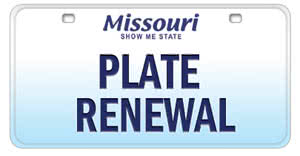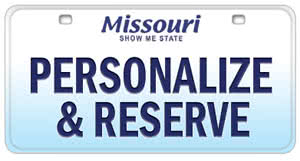Department of Social Services
Broadway State Office Building, Room 240
P.O. Box 1527
Jefferson City, Missouri 65102
573/751-4815
dss.mo.gov
The Department of Social Services partners with families and communities to protect children, rehabilitate youth and move families to self sufficiency so that Missourians can lead safe, healthy and productive lives. Administrative responsibility for agency activities rests with a department director appointed by the Governor with the advice and consent of the state Senate.
Agency programs are managed through its functional divisions as described below. The department maintains field offices in each Missouri county and in the City of St. Louis.
Children’s Division (CD)
The Children’s Division (CD) works in partnership with families, communities, the courts and other governmental entities toward assuring the safety, permanency, and well-being of Missouri’s children. The Division’s guiding principles are Protection, Partnership, Permanency, Practice Excellence, Prevention and Professionalism. The division works with all parties to safely maintain children in their homes whenever possible and to secure safe, permanent living arrangements when out-of-home placement is necessary. The Children’s Division administers the Child Abuse/Neglect Hotline, School Violence Hotline, Intensive In-Home Services, Family Centered Services, Adoption Services, Independent Living, Foster Care, Residential Licensing and preventive services including Early Head Start, Stay-at-Home Parent Program, Child Care Start-Up and Expansion Program, Child Care Subsidy, and other early childhood and early intervention strategies. The division is responsible for the assessment and investigation of all reports to the Child Abuse/Neglect Hotline.
Family Support Division (FSD)
The Family Support Division (FSD) exists to provide a continuum of support for families. FSD’s goal is to assist families in maintaining or improving their quality of life. FSD accomplishes this goal for the children and families of Missouri by providing the best possible services to the public.
FSD services include: Income Maintenance programs, including the Food Stamp, Temporary Assistance and Medicaid programs; Rehabilitation Services for the Blind; and the Child Support program. Other programs include: Community Services Block Grant Programs; Low Income Home Energy Assistance; Refugee Resettlement; and Supplemental Nursing Care.
Division of Youth Services’ (DYS)
The Division of Youth Services’ (DYS) mission is to protect communities from juvenile offenders in the division’s care and custody and to provide appropriate services to youth and their families. This balanced approach to juvenile justice relies on community partnerships for the development and enhancement of services for the prevention of delinquency. DYS programs are established to provide the mandated services enumerated in Chapter 219.016 in the Revised Statutes of the state of Missouri. These services include assessment, care and treatment, and education of all youth committed to its care. DYS is charged with the care and treatment of youth committed to its custody by one of the 45 Missouri juvenile courts. Towards this end, DYS operates treatment programs ranging from non-residential day treatment centers through secure residential institutions. Additionally, DYS administers the Interstate Compact on Juveniles, operates an accredited school program, and maintains a statewide statistical database of juvenile court referrals. DYS is administratively organized into one central office and five regional offices.
MO HealthNet Division (MHD)
The MO HealthNet Division (MHD) administers the MO HealthNet (Missouri Medicaid) program. MO HealthNet provides medical services to eligible participants within defined program benefits in somewhat the same way insurance companies provide coverage for their policyholders. The services provided include those required by the federal government such as hospital and physician services. Also included are optional services such as pharmaceutical and personal care services authorized by the Missouri General Assembly and identified in state statute. A mandatory Medicaid managed care program is in place for eligible participants in the eastern, central, and western areas of the state. Children, pregnant women, TANF families, and children in state custody receive their medical care through managed care organizations, allowing the state to ensure access to health care and control costs at the same time.
The MO HealthNet Pharmacy Program oversees outpatient prescription drug reimbursement. The pharmacy benefit includes reimbursement for all drug products of manufacturers who have entered into a rebate agree with the Federal Department of Health and Human Services and that are dispensed by qualified providers, with few therapeutic category exclusions. In addition, MHD is responsible for program development, benefit design and clinical policy decision-making with activities oriented towards wellness and continuum of care. The MO HealthNet program includes specialized services for specific populations within the state by receiving waiver authority from the federal government. Home and community-based waivers for the elderly, certain developmentally disabled participants, as well as patients with AIDS were obtained and allow the MO HealthNet program to pay for otherwise non-covered home care as an alternative to more expensive institutional care. These services are restricted to those participants who would otherwise require, and whose home care is no more expensive than, institutionalization.





















